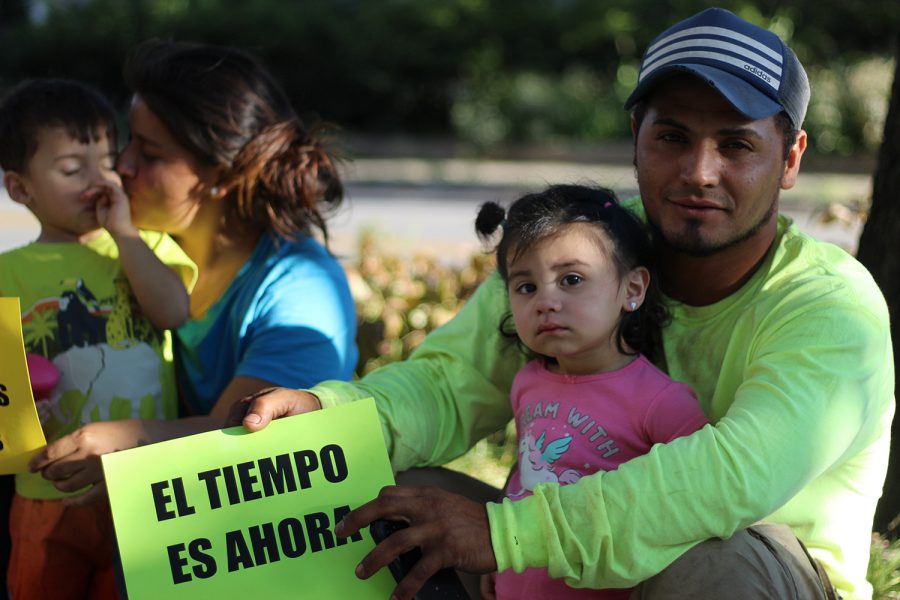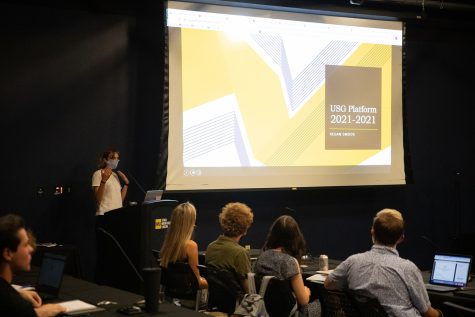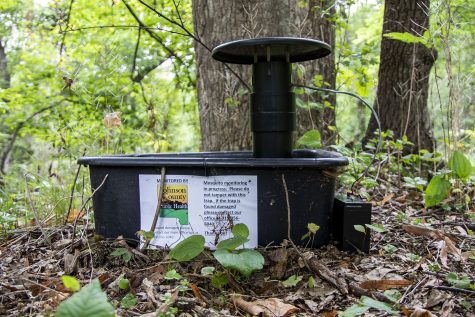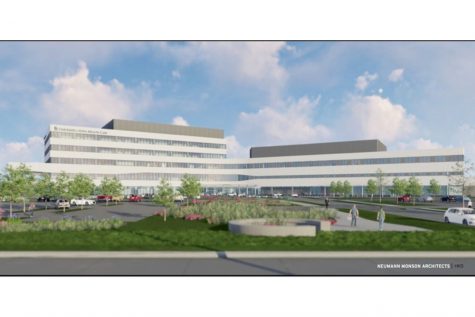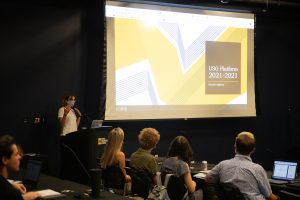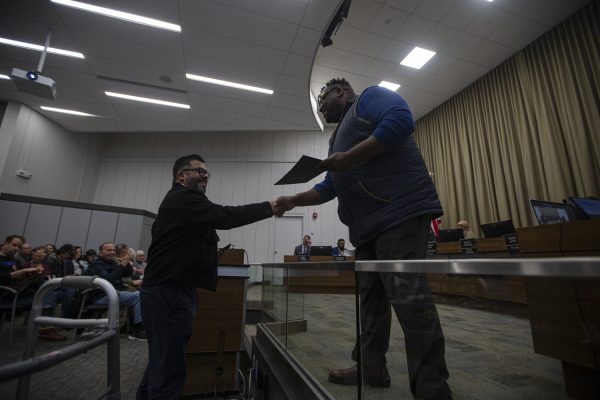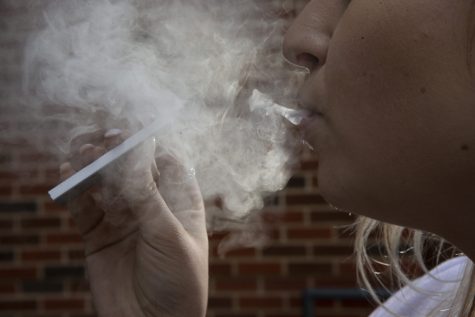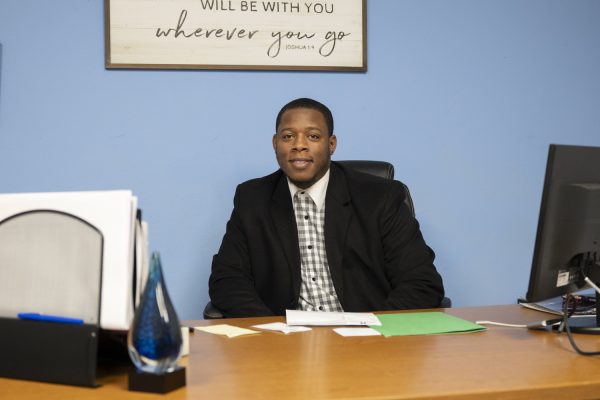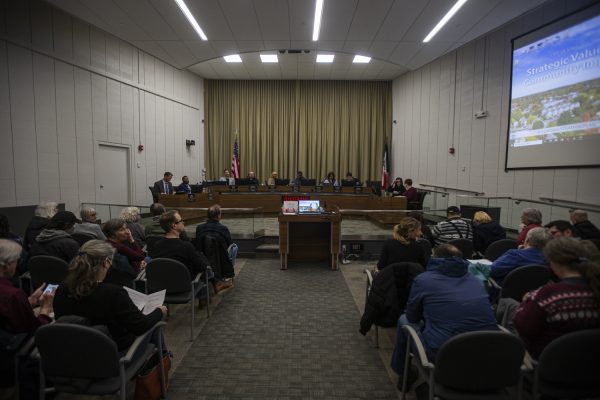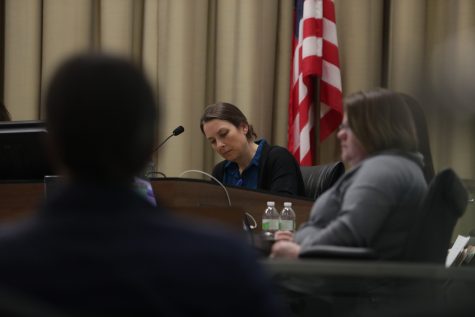Fund Excluded Workers Coalition rallies over American Rescue Plan funds
Protesters took the podium at Tuesday night’s Iowa City City Council meeting to call on the council to provide American Rescue Plans for excluded workers.
Protesters hold their kids close outside the Iowa City Senior Center while pushing for pandemic relief Tuesday, Sept. 7, 2021. (Gabby Drees/The Daily Iowan)
September 7, 2021
Dozens of protesters gathered outside the Iowa City Senior Center on Tuesday night to call on the city to allocate funds from the American Rescue Plan to excluded workers — individuals who were not eligible for other forms of pandemic relief.
The American Rescue Plan was a fund granted by President Joe Biden to stimulate the economy and help Americans who have been financially affected by COVID-19. The funding will distribute $1.9 trillion in economic stimulus bills. The funds are to be organized and assigned for distribution by 2024 and spent by 2026.
The U.S. Treasury granted $18.3 million to the City of Iowa City, as previously reported by The Daily Iowan. The Iowa City City Council is continuing to debate whether or not funds will be given to excluded workers.
Excluded workers are defined as those not covered by federal or state pandemic assistance, such undocumented workers and those who have been formerly incarcerated. This has largely impacted the Hispanic immigrant community in Iowa City.
The Catholic Worker released their findings of a survey they did in August with 289 undocumented workers. Eighty percent of the surveyed defined themselves as “essential workers.”
“We’re just keeping the pressure on the city council to make sure that we get the funds out to these people who didn’t get any stimulus checks,” said Barb Stanerson, the president of the SEIU Local 99 labor union. “They couldn’t collect unemployment, yet they had to work all the way through the pandemic.”
The rally started at 5:30 p.m on Tuesday — while the city council’s work session carried on — outside of the Iowa City Senior Center. At 6 p.m., when the Iowa City town hall meeting started, the protesters moved inside the building.
Many of them carried signs that said “Somos Trabajadores Esenciales,” and “We need relief!”
This is the second protest related to the American Rescue Plan, as previously reported by the DI. Excluded workers and allies gathered outside the Iowa City Catholic Worker House on Aug. 11 to call on Iowa City leaders to give American Rescue Plan funds to excluded workers.
City Manager Geoff Fruin said to protesters on Aug. 11 that the city council would discuss the funding at the meeting on Tuesday. The discussion took place during the council’s work session, where staff from the city manager’s office presented on what the city has already done in terms of COVID-19 relief, and recommendations for the council moving forward.
Per the city manager’s presentation, city staff are recommending that the city direct one-time payments to income-eligible adults who did not receive federal stimulus checks or employment benefits, specifically Iowa City’s undocumented population. The estimated funds for these payments are between $1 million and $1.5 million.
“This is largely the undocumented population. This was widely supported throughout the public input process, in pretty much all the different venues and ways we collected information,” Fruin said. “We don’t know how many people would be eligible just here in Iowa City, but it’s likely in the hundreds.”
Johnson County recently expanded its General Assistance Program to increase eligibility for more individuals. One expanded feature is that immigration status is no longer required to apply. Fruin said during the session that he believes the city should make its first call to General Assistance when the city begins allocating American Rescue Plan funds to the largely undocumented population.
Assistant City Manager Rachel Kilburg said ongoing public input will be necessary as the city determines how to best distribute funds throughout the community.
According to a survey conducted throughout the summer, there were 1,982 responses, including 682 comments. The areas that received the most support for distributed funds were addressing economic disparities in households; addressing physical/mental health disparities in households; and bolstering nonprofits and social service agencies.
While the term “excluded workers” did not appear in the survey or in the city’s presentation, many survey respondents supported doling out funds to low-earning essential workers, and Kilburg said some suggestions referred to assisting underserved populations — such as immigrants who have lived here for 30 years — a smoother path to homeownership.
Mayor Bruce Teague said he is both in awe of all the ideas from the public, but disheartened by the large amount of needs in the community.
“Seeing it all in one space is a lot to digest as the needs with people. From COVID, there have been a lot of challenges that people have had,” Teague said. “But when I do look at the list, I do find hope and opportunity…when we look at the direct payment for eligible adults for those that were really excluded, I think this is a great opportunity that we can give to those individuals.”
Multiple demonstrators took the podium to advocate for an excluded worker fund, stating that they have been affected by the pandemic just as badly as the rest of the Iowa City community, and that it’s unfair that they should not receive the same help.
The youngest speaker was a little girl who only gave her first name, Kayla, and said that she wanted the funds so her family could buy food.
The majority of the protesters speaking out about the issue did not speak English and required a translator. Emily Sinnwell acted as an unofficial translator for those protesters.
Sinnwell, a University of Iowa nurse practitioner, said she believes the fact that many of the protesters do not speak English is a “huge barrier” the Latinx community faces when advocating for themselves.
“They can’t even navigate the systems that we live in. Even just knowing when city council meetings are happening,” Sinnwell said.
Sinnwell got involved in the protest as a volunteer at Iowa City Catholic Worker, she said.
“I feel that this thing… is a great cause to fight for because most of these people that work out here in the workforce are Latinos,” Juan Martinez, a local high school student, said.
Martinez said he joined the protest because he wanted to gain a new perspective on the lives of other people.
“When I see my people fighting for a right, I feel that I have to fight too, because I can’t leave my people out of this,” Martinez said.



